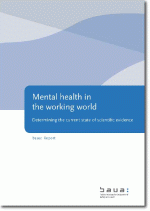Meaning, findings and perspectives
A joint event with the Confederation of German Employers' Associations, the German Trade Union Confederation and the Federal Ministry of Labour and Social Affairs on 5th May 2017 in Berlin
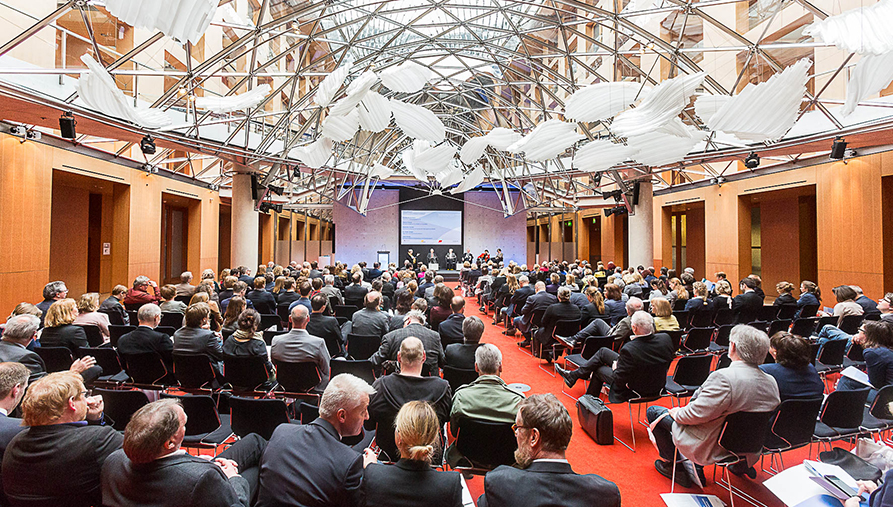
At the "Mental Health in the Working World" conference, which took place on 5th May 2017 in Berlin, some 300 representatives from employers' associations and trade unions, as well as guests from the worlds of politics and academia, discussed the results of the "Mental Health in the Working World" project. At the same time, the event also marked the start of the dialogue process of the same name, in the scope of which the Federal Ministry of Labour and Social Affairs, social partners, representatives of the National Occupational Health and Safety Conference, and BAuA shall agree to measures for maintaining and strengthening the mental health of employees and working people.
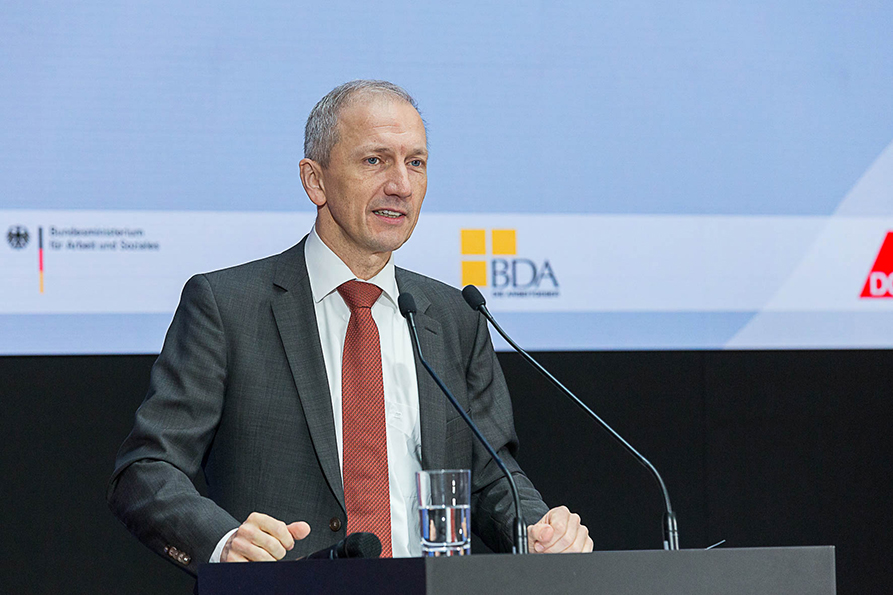
In his welcoming speech, Alexander Gunkel, BDA, highlighted the innate interest that employers have in ensuring the mental health of their employees. In an agreed dialogue process, the goal is to find common ways of avoiding sources of mental strain and agreeing to specific implementation steps in this respect. BAuA's report shows, in particular, that it is necessary to promote knowledge of work design at the organisational level, as in our rapidly changing world of work, organisational players need to be able to continuously adapt the design of the working conditions on an organisationally-specific basis.
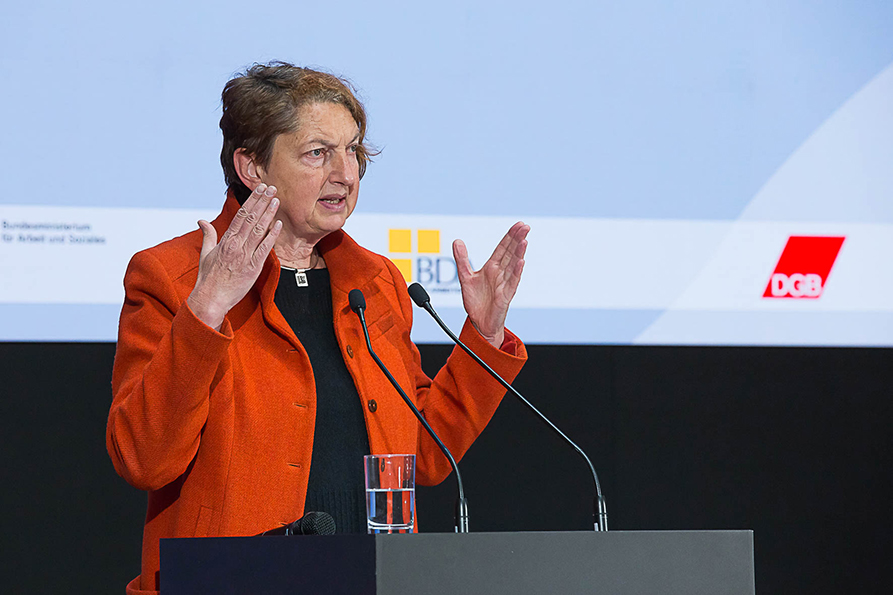
Following Alexander Gunkel, Annelie Buntenbach from the DGB also addressed the guests. She highlighted that in the digital world of work, the increasing intensity of the work poses a risk to the mental health of employees in all sectors. Long-term improvements can only be achieved on the basis of a higher degree of liability and obligation, which is why the trade unions continue to believe an anti-stress directive to be necessary. The DGB and its member trade unions want to work together to further advance the promotion of mental health in the world of work and to participate constructively in the dialogue process for "Mental health in the Working World".
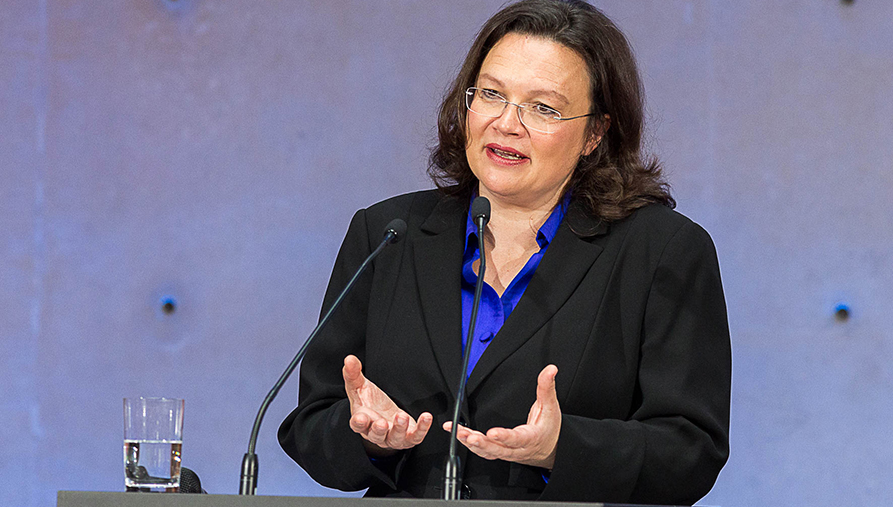
In her speech, Andrea Nahles, Federal Minister for Work and Social Affairs, highlighted the importance of the topic of mental health and the arising challenges for occupational health and safety. She also described BAuA's concluding report, which was presented in the scope of the event for the first time, as being an excellent basis for the subsequent process of dialogue. This report demonstrates that there is no patent remedy for protecting and encouraging mental health in employees and that an "Occupational Health and Safety 4.0" is required which grasps and addresses new risks, such as those resulting from digitalisation. A good legal framework already exists for many risks which needs to be implemented more consistently, however, so as to enable an exact degree of prevention in organisations. In this context, intensive consultations are to take place with social partners on how the existing legal framework can be put to better use and where new answers are required due to digitalisation. For this purpose, evaluable and measurable goals will be agreed by the end of 2018.
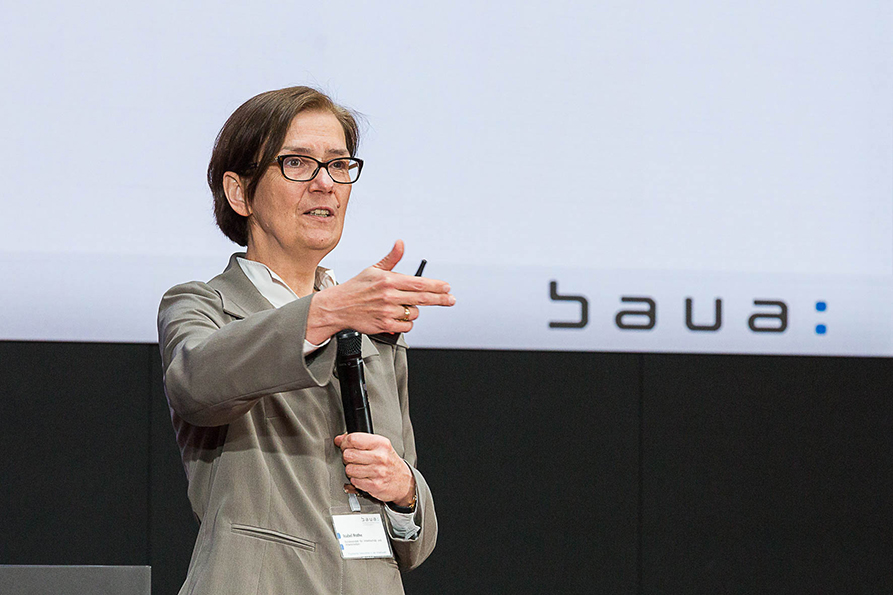
Isabel Rothe, BAuA President, presented the "Mental Health in the World of Work - Scientific Assessment" report and highlighted that the configuration of the world of work regarding the factor of mental health is one of the most important challenges for a contemporary form of occupational health and safety.
Following a presentation of the three phases of the corresponding BAuA research project - the creation of scoping reviews, discussions between academic experts, the dialogue with the occupational health and safety community - she presented the key findings regarding the impact of more than 20 working conditions factors that were examined on the mental health of employees. She also highlighted the differentiation of the factors in terms of those which, on the basis of their impact, can be regarded to be stressors, and those which function as resources. In terms of the stressors, work intensity, emotional labour and atypical working hours play a key role. Job control and good leadership have proved to be particularly relevant resources .
In the subsequently presented recommendations, firstly, the configuration of individual factors relating to working conditions, such as working hours, was addressed as being a key factor for employee health and well-being. In addition, task-related factors and those relating to the working environment and person-technology interaction were also addressed.
Secondly, Isabel Rothe emphasized the necessity to extend the perspective to mental health by taking both the risks as well as the work-related resources, i.e. the positive attributes of work, into account. The further development of the systems and approaches in the field of occupational health and safety, strengthening the expertise of those involved in work design, and the use of key organisational alliances were all highlighted as being preconditions.
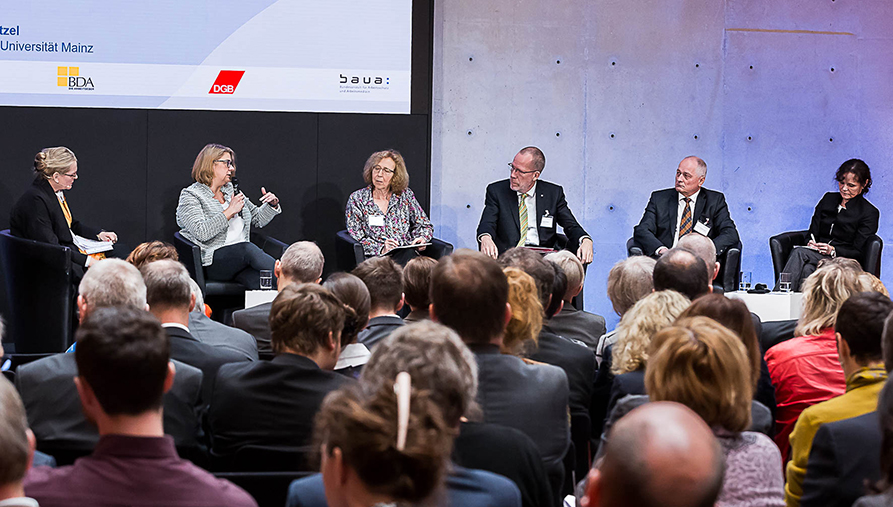
During the panel discussion on the "Scientific and practical perspectives", the findings of the scientific assessment were linked with the experiences and requirements of organisational practice. In this respect, the specific challenges to be associated with the topic of mental health at the level of the company or organisation were discussed, making reference to the key role of managerial staff. It also became clear that there is a need for further research in terms of the supporting conditions for the successful organisational implementation of the recommended measures.
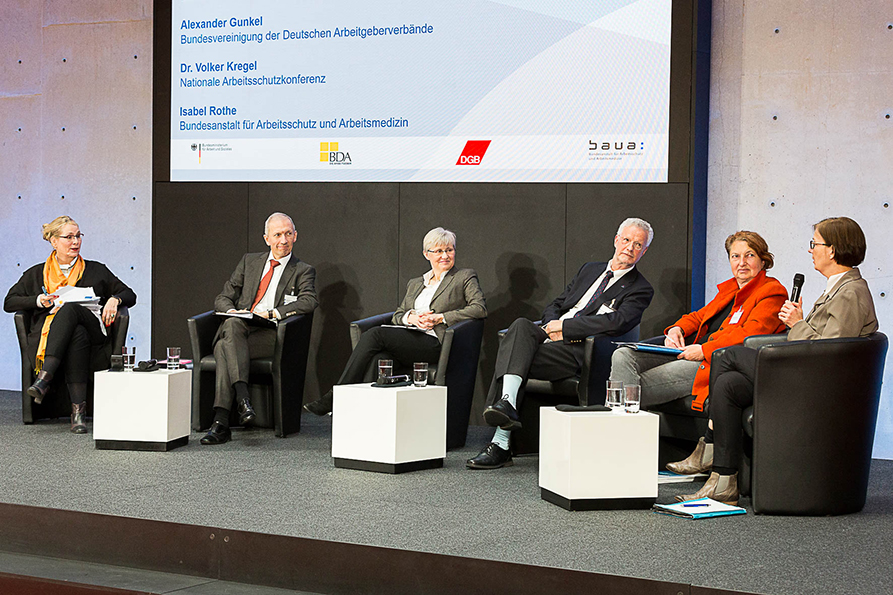
In the subsequent panel discussion, the representatives of the social partners and the BMAS, as well as Dr. Volker Kregel, representative of the National Conference for Occupational Health and Safety and Isabel Rothe, once again highlighted that the future dialogue process will have to prioritise the achievement of specific progress-oriented steps. In this respect, BAuA's recommendations represent a positive addition to and a further development of the joint declaration on mental health in the world of work by the BMAS, the BDA and the DGB. It is now necessary to define the roles and responsibilities for the subsequent process and to set out the key measures.
